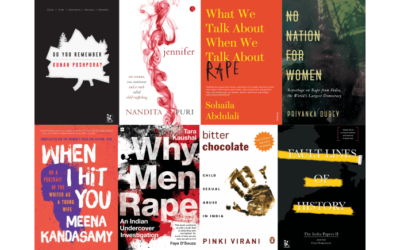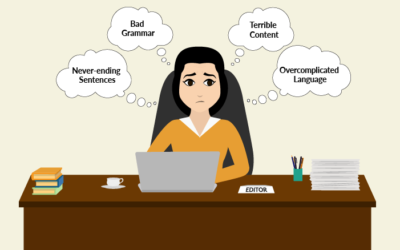How To Remember What You Read

Aditya Nair
September 07, 2018
However, more recently, I have started grappling with the limits of my memory and my inability to recall what I thought I knew. This is an attempt to fix the problem. Or, at least, reduce it.
The Forgetting Curve
The forgetting curve was hypothesised in 1885 by German psychologist Hermann Ebbinghaus. The amount of information you forget varies depending on factors like difficulty level, its significance to you, stress and sleep levels, to name a few. However, the salient takeaway here is that you will forget most of what you’ve read in less than 24 hours.
Ebbinghaus suggested that the best methods for increasing the strength of memory are:
- Better memory representation (For example, using mnemonic devices, graphs and charts); and
- Repetition-based on active recall with an emphasis on spaced repetition.
Lie, Cheat and Steal
Keeping Ebbinghaus’ first condition in mind, I have created the mnemonic device, “Lie, cheat and steal”. Keeping with the essence of the third principle, the title itself is stolen, from a wrestler.
1. The Lie: Before you read the book and when all you know about the book is its title and the back-of-the-book description, find a friend and lie to them about having already read the book. What you tell them will be based on assumptions that you’ve made of the book.
When you do eventually get down to reading it, there will probably be a drastic contrast between what is written and what your imagination made up. This dissonance is what helps me remember ideas better than anything else. However, do go back and give your friend the correct information about the book, once you read it. Let’s not spread more disinformation.
2. The Cheat: With non-fiction books, spoil the ending for yourself. Read the summary, follow up with the reviews and quotes on Goodreads, Wikipedia similar topics, and listen to interviews with the author to understand what the book is about before you even read the book. A solid foundation of knowledge on a subject is the best way to understand and remember new ideas.
This works with fiction as well. When I read sci-fi, I like to look up any radical technology mentioned in the book. I’ll try to find blogs or interviews that discuss the possibility of the technology becoming real. I’ll also try to get an understanding of the history of attempts to make it possible.
If it involves a location that is not Mumbai, I like to Wikipedia the geography, people, culture, and traditions of the area the book is set in. Running a Google Image search for the setting of the plot gives me a better feel for it.
There is an old advertising adage that comes in handy. Paraphrased, it goes something like this, “If a product is radically different, present it as something familiar. If the product is similar to other products, present it as radically different.”
This works with ideas too. If what you are reading is radically new to you, try to relate it to familiar situations and think of moments where you might be able to apply what you are learning. If you are well versed with the topic you are reading, try to come up with comically, absurd situations to implement the ideas. That way, the moment is burnt into your brain and you’ll be able to remember what you read.
If you are discussing nonfiction with a friend and mention a theory proposed by an Ivy League professor, odds are you won’t get much of a debate going, unless they are an expert on the topic. Your friend is likely thinking, “An Ivy League professor probably knows what he is talking about.” So, they will acquiesce. And that is the mistake.
The same goes for opinions on theme and subtext in works of fiction. Arguing against the point of view of a culture critic or the author can be quite daunting.
So, instead steal the ideas. Make them your own. Let your friends argue against your point of view rather than that of a stranger. That these are ideas from something you’ve read only needs to come into the conversation much later.
Keeping this in mind as a base strategy when reading, let’s move on to the hard part: reading repeatedly at timely intervals.
Repetition, Repetition, Repetition… Repetition, Repetition, Repetition…
Repetition, Repetition, Repetition… You see where this is going.
This is the part I have the most trouble with. Except for perhaps Harry Potter and Thinking, Fast And Slow, I have never really read the same book twice. I can’t. My eyes just gloss over the words.
However, going back to what you read at regular intervals is not only the best way but also possibly the only way to remember what you’ve learned. To allow for repetition without repetition, here are a few things you can do:
- Recap: On an average day, I can usually manage two chapters of a book in one sitting. Before I pick up from where I left off, I like to scan through the previous two to three chapters to recap what I have read. Ultimately, it is always better to read slowly and read less.
- Use Audiobooks: According to research by psychologist Daniel Willingham, listening to audiobooks is not cheating. The brain does treat it the same way as it does “real” reading. While this might be the case, when I listen to an audiobook, I usually end up doing something else. So from the perspective of achieving the necessary amount of focus, I am not sure it works out for me. However, I am happy to listen to chapters from a book I have already read on my way to and from work.
- Get on YouTube: If you think of TED talks by authors as the trailer for nonfiction, Authors at Google is the BluRay release with audio commentary. It’s great! 40 minutes to an hour of the author presenting their work is a perfect way to keep in touch with what you are reading without having to reread it.
- Take a Lot of Notes: Whether you like going to town on books with a highlighter and a pen, or you keep a dedicated notebook or even if you prefer to do things digitally, whatever your note-taking weapon of choice is, use it. Make a list of everything you want to remember- quotes, passages, or even a description that you liked the sound of. If some questions come to mind while reading a particular section, make a note of them.
A notepad, some highlighters, and pens, or a free app or two, any of them will work just as well as expensive products. The crucial thing to remember is that the effort pays off. So, avoid copying and pasting what you want to make a note of and instead make an effort to type it out or, preferably, write it out. - Read Summaries: Sometimes, if a book I have read comes up in conversation, I try to find literature reviews or summaries that I can look up to revise what I have learned. It is a great way to stay in touch with the book. Goodreads is also an excellent source for short summaries and opinions of fellow readers.
Finally, remember that consumption is not learning. Take time to reflect on what you read and solicit feedback- the more polarised, the better. And put into practice what you have read.
Icons in the featured image: clipboard by Creative Stall from the Noun Project; audiobook by ProSymbols from the Noun Project; chat by Trident from the Noun Project; and laptop search by Rockicon from the Noun Project

Aditya Nair is a copywriter and photographer. Hit him up if you want to discuss Sci-Fi, Fantasy, or which movies are better than books. Yes! They exist.
Read this articles, here.







In college, I knew the plot of the Harry Potter books almost by heart. I once narrated it scene by scene to a 6-year-old child. But now if I think about it, I barely remember the peripheral characters, forget the plot! And I doubt that even if I reread it now, I’ll be able to narrate it scene by scene as I used to.
So I’m going to try these tips for remembering books. Thank you for writing this!